2005 Forest Products TechnoBusiness Forum ProceedingsOPEN INNOVATION, ENTERPRISE
TRANSFORMATION FORUM GOALS Co-sponsors IPST and CPBIS represent the two components of the TechnoBusiness description. Our overall goal for the Forum was to demonstrate that innovative technology can be combined with proven business practices to pursue product development that is meaningful, profitable and transformative.
Monday, September 19,
2005 |
|
|
WHAT IS NEEDED TO VIEW THE VIDEO
RECORDINGS KEYNOTE ADDRESSES Three keynote addresses introduced the evolving role of open innovation as a new paradigm for enterprise effectiveness, enhanced research outcomes and enterprise transformation. Monday
LEADERSHIP PANEL Monday, 2:30 – 5:00 pm A distinguished leadership panel, with representatives from academe, industry, and the USDA Forest Service followed the first day keynote addresses and discussed the current uses and the merits of open innovation for enterprise effectiveness and organizations' R&D programs. Moderators – Jim Frederick (IPST) & Jim McNutt (CPBIS)Panel – Don Armagnac (MeadWestvaco); George Weyerhaeuser (Weyerhaeuser), Jerry Lazarski (Stora Enso), Ann Bartuska (USDA), and Keynote Speakers – Bill Rouse & Joel West Mead Paper Education Center Opening Reception Monday, 5:30 – 7:30 pm The new Center will allow the Robert C. Williams Paper Museum to increase educational and public programming. The Mead Center will expand the public's familiarity with the paper industry and paper's importance in our daily lives. The Center includes a new exhibition space, a papermaking classroom, and a space for scholars studying the Museum's unparalleled collection of papermaking history artifacts. The Center would enjoy a partnership with your company's communications department. For more information, please contact Cindy.Bowden@ipst.gatech.edu. NANOTECHNOLOGY PANEL Tuesday, 8:30 – 10:40 am Representatives from Imerys, CPBIS, IPST, Georgia Tech, Worcester Polytechnique Institute, Buckman Laboratories and the NSTC's National Nanotechnology Coordination Office highlighted existing research in nanotechnology for the forest products industry. The panel discussion addressed how implementation of nanotechnology will benefit from open innovation processes, increase enterprise effectiveness, and grow the forest products industry. The panel also clarified how other research organizations can contribute through open innovation to this important area of developing technology. Moderator/Facilitator – Phil Jones (IMERYS Clays) Jim McNutt (CPBIS), Art Ragauskas (IPST), Clayton Teague (NSTC – National Science and Technology Council), Mike Anstey (Buckman Labs) & Diran Apelian (Worcester Polytechnic Institute) BIOREFINERY PANEL Tuesday, 10:50 am – 1:00 pm Representatives from Agenda 2020, Auburn University, Weyerhaeuser, Carnegie Mellon University, IPST, CPBIS, and Green Design Institute collectively addressed the evolving arena of biorefineries. Innovative research in Thermo-Chemical Biorefineries indicates that the forest products industry is a potential fuels producer and a co-generator of electricity. This panel discussion addressed the opportunities and challenges of deploying this technology in an open innovation environment. The panel discussed how organizations can best prepare for the process changes, technical practicalities and business partnerships required to fully exploit this promising product platform. Moderator/Facilitator – Lori Perine (Agenda 2020) Jim McNutt (CPBIS), Jim Frederick (IPST), Mario Eden (Auburn), Mike Griffin, (Green Design Institute), Denny Hunter (Weyerhaeuser), Ben Thorp (CTT Consultant), & Lester Lave (Carnegie Mellon) INTERACTIVE MODELING OF RESEARCH PROJECTS Tuesday, 2:10 – 3:50 pm Dr. Bill Rouse, Tennenbaum Institute for Enterprise Transformation, led an exploratory, interactive session using his R&D World: A Simulation-Based Analysis of R&D Enterprises. Data collected from the Forum participants was used in an interactive modeling demonstration to illustrate practical value of new systems techniques for enterprise measurement systems and measures of research related risks and benefits. The Tennenbaum Institute for Enterprise Transformation In business markets driven by constant technological and commercial change, successful companies and industries must ceaselessly reinvent themselves to thrive. The Tennenbaum Institute is the first multidisciplinary center of its kind, uniting academic, government, and corporate experts to create industry-shaping business models. The Institute seeks to help existing enterprises become more cost effective and competitive. Georgia Tech, a well recognized leader in technological innovations, is a natural partner for researching and developing transformative industry-wide initiatives. For more information please visit www.ti.gatech.edu. BIOS of presenters  Mike Anstey
View Presentation
(PDF) Mike Anstey
View Presentation
(PDF)Mike Anstey is the vice president of research and development at Buckman Laboratories. He has been with the company for 28 years serving in various capacities in Canada , Asia and now the US. Return to agenda Diran
Apelian View Presentation
(PDF) Diran
Apelian View Presentation
(PDF)Diran Apelian is Howmet Professor of Engineering and Director of the Metal Processing Institute at Worcester Polytechnic Institute (WPI). He received his B.S. degree in metallurgical engineering from Drexel University in 1968 and his doctorate in materials science and engineering from MIT in 1972. He worked at Bethlehem Steel's Homer Research Laboratories before joining Drexel University 's faculty in 1976. At Drexel he held various positions, including professor, head of the Department of Materials Engineering, associate dean of the College of Engineering and vice-provost of the University. He joined WPI in July 1990 as the Institute's Provost. In 1996 he returned to the faculty and leads the activities of the Metal Processing Institute. He is credited with pioneering work in various areas of solidification processing and powder metallurgy–specifically in molten metal processing, aluminum alloy development, plasma deposition, spray casting/forming, and semi-solid processing of metals. Apelian is the recipient of many distinguished honors and awards _ national and international; he has over 400 publications to his credit; and serves on several technical, corporate and editorial boards. Return to agenda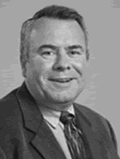 Don Armagnac
View Presentation
(PDF) Don Armagnac
View Presentation
(PDF)Mr. Armagnac leads MeadWestvaco's New Ventures Group which is focused on developing new, innovative businesses that provide value to our company. Prior to joining Westvaco in January 2002, Mr. Armagnac was president and chief executive officer of Collabria Software, a supply chain company focused on digital asset management. Prior to Collabria, he was executive vice president of field operations at QAD Software where he led the successful launch of QAD's Consulting Services Division. In addition to the Consulting Services Division, his multinational responsibilities at QAD included: global marketing and communications, sales operations, alliances and customer support. Prior to working at QAD, his focus was on technology for global manufacturing as international vice president for Digital Equipment Company's manufacturing and ERP systems integration practices. Mr. Armagnac was previously Digital's Western region sales vice president supporting major clients in 11 Western states. Return to agenda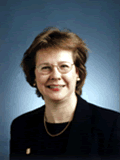 Ann Bartuska
View Presentation
(PDF) Ann Bartuska
View Presentation
(PDF)Dr. Ann M. Bartuska is Deputy Chief for Research and Development of the USDA Forest Service. Prior to coming to this position in January, 2004, she was Executive Director of the Invasive Species Initiative at The Nature Conservancy, supporting capacity building and policy development at a global scale. She has held numerous leadership positions in the USDA Forest Service, including serving as the first woman and first ecologist as Director of Forest Management. Dr. Bartuska is an ecosystem ecologist by training and was recently President of the Ecological Society of America . Return to agenda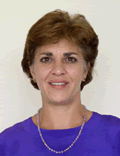 Kathy
Buckman-Gibson Kathy
Buckman-GibsonKathy Buckman-Gibson is currently Chairman of the Buckman Laboratories. She succeeds her father, Robert Buckman, as head of the company her grandfather, Stanley J. Buckman, created in 1945. Buckman-Gibson holds an undergraduate degree from Duke University and a law degree and MBA from Emory University . Prior to joining Buckman Laboratories, Buckman-Gibson worked as an analyst for Citicorp and at Smith, Gambrell & Russell as an associate in mergers & acquisitions. In 1993, Buckman-Gibson joined Buckman Laboratories International, Inc. as Vice-President, Legal and Corporate Secretary. In 2000 she was named Chairman of the Board of Bulab Holdings, Inc. Buckman-Gibson is a member of the Board of Directors of PIMA and TAPPI, and serves as Chair of the Education Committee for PIMA. She also serves as Vice-Chairman of the Board of Executives of the Center for Paper Business Industry Studies (CPBIS). She is also actively involved in a variety of charitable organizations, such as the United Way of the Mid-South, the BioWorks Foundation, the Mid-South Reading Alliance, and Girls, Incorporated. In her leisure time, Kathy enjoys gardening, boating and reading. Headquartered in Memphis , Tennessee , Buckman Laboratories is an ISO certified, specialty chemical manufacturer serving customers in the pulp and paper, water treatment, and leather markets in over 90 countries. Buckman Laboratories has facilities in the United States, Canada, Mexico, Europe, South America, South Africa, Australia, Asia, and most recently China. State-of-the art technical and research laboratories offer customers valuable chemical and biological analyses, as well as innovative new products and application equipment. Buckman Laboratories maintains a well-trained team of sales and technical representatives available to provide customers measurable improvements in their output and quality by providing customer-specific services, products and the creative application of knowledge. Return to agenda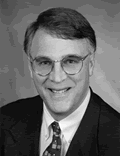 Mike
Cassidy Mike
CassidyMike is the President and CEO of the Georgia Research Alliance . Before joining the Alliance in 1993, Mr. Cassidy managed the Advanced Technology Development Center (ATDC) based at Georgia Tech, one of the nation's oldest technology incubators. Prior to that he worked for the IBM Corporation where he held various staff and management positions. Mr. Cassidy has earned a Master's degree in Technology and Science Policy from the Georgia Institute of Technology and a BBA degree in Marketing from Georgia State University . Mr. Cassidy consults with several states on issues of science and technology policy. He represents Georgia on the Southern Technology Council and the Southern Governors' Association Advisory Committee on Research, Development and Technology. He is on the Board of Directors of Oak Ridge Associated Universities, the Southeastern Life Sciences Association, the Council of Biotechnology Centers, the Georgia Cancer Coalition, Georgia Advanced Technology Ventures, the Georgia Chamber of Commerce, the Capital Formation Institute and the Technology Association of Georgia. He is active with the Council on Competitiveness in developing their National Innovation Initiative. He is on the Board of Visitors of the Grady Health System and is a member of the Commerce Club of Atlanta . Return to agenda Mario Eden
View Presentation
(PDF) Mario Eden
View Presentation
(PDF)Dr. Mario Eden is Assistant Professor of Chemical Engineering at Auburn University and his expertise is in the area of process systems engineering with emphasis on process synthesis, design integration and optimization. Dr. Eden received his M.Sc. and Ph.D. (with distinction) in chemical engineering from the Technical University of Denmark under the supervision of Professor Sten Bay Jorgensen and Professor Rafiqul Gani. The research of Dr. Eden's group focuses on the development of systematic methodologies for process and product synthesis, design, integration, and optimization. By combining fundamental chemical engineering principles and process systems engineering approaches novel methods are developed that enable targeted solution of problems related to debottlenecking, pollution prevention and resource conservation. Current activities include: 1) Reverse problem formulation techniques for targeted design. 2) Property based process and product design. 3) Componentless techniques for process and molecular synthesis. 4) Process integration and optimization of logistical fuel processing, biorefinery systems and other polygeneration plants. Return to agenda Jim
Frederick View Presentation
(PDF) Jim
Frederick View Presentation
(PDF)Jim Frederick is the Director of the Institute of Paper Science and Technology and a Professor in the School of Chemical and Biomolecular Engineering at Georgia Tech. Dr. Frederick received his bachelor's degree in chemical engineering from the University of Maine in 1967. His master's and doctoral degrees, also from the University of Maine , were earned in 1969 and 1973 respectively. Dr. Frederick previously held the positions of Associate Professor (1976-1980) and Professor (1997-2001) at IPST. His prior academic experience includes 10 years on the faculty of Chemical Engineering at Oregon State University, where he was head of that department from 1992-96. From 2001-2003, he held the CEI Professorship in Green Chemistry at Chalmers University of Technology, Gotherburg Sweden . He was Visiting Professor of Chemical Engineering at _bo Akademi University in Turku, Finland from 1988-1991. He also has industrial experience with Weyerhaeuser Company and General Motors. Dr. Frederick's research interests are in Environmentally Sustainable Industries and Process Technology. His work in this area has focused on chemicals and energy from industrial wastes, and on improved technologies for chemical and energy recovery. Return to agenda Mike Griffin
View Presentation
(PDF) Mike Griffin
View Presentation
(PDF)Michael Griffin is the Executive Director of Green Design at Carnegie Mellon University . He has previously held positions at British Petroleum, Sybron Chemicals and the National Environmental Technology Application Corporation. His current research interest center on the energy sustainability issues, production of chemicals and fuels via fermentation of renewable resources, and the life cycle impacts of LNG use. His education includes a B.S. and M.S. in Biology from the University of Dayton and a Ph.D. in Microbiology from the University of Rhode Island . Return to agenda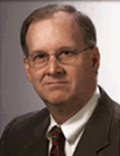 Denny Hunter
View Presentation
(PDF) Denny Hunter
View Presentation
(PDF)W. Densmore Hunter is Vice President of Technology responsible for leadership of research, development and technology support efforts across the Pulp, Paper and Packaging businesses. He joined Weyerhaeuser Company in 1980 and has held a number of key positions in process and manufacturing research and technology dealing with energy, chemical recovery, pulping, bleaching, raw materials, papermaking and process control. Hunter is a member of the TAPPI Board of Directors and the TAPPI Research Management Committee. Return to agenda Phil
Jones Phil
JonesPhil Jones earned his bachelor's degree in Physics from King's College, University of London in 1970 and a Ph.D. in Physics (Solid-state properties of synthetic kaolins) from the University of London . In 1975 he joined English China Clays plc. (English China Clays is now a part of Imerys). He has been a member of the Board of Directors of Tappi (Technical Association of Pulp & Paper Industries, Tappi Fellow and past chairman of the Tappi Research Management Committee. He is the Vice-Chairman of the Industry Advisory Board of CPBIS at Georgia Tech (Center for Paper Business Industry Studies). He is a member of the NSF visiting committee to the Nano-fabrication Center at Pennsylvania State University and also on the AF&PA/TAPPI review committee at the Forest Products Lab in Madison WI. In October 2004 he organized and co-chaired a workshop on Nanotechnology for the Forest Products Industry, which will resulted in a roadmap being published in March 2005. Return to agenda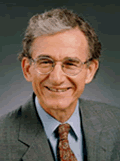 Lester Lave
View Presentation
(PDF) Lester Lave
View Presentation
(PDF)Lester B. Lave is University Professor and Higgins Professor of Economics at Carnegie Mellon University , with appointments in the Business School , Engineering School , and the Public Policy School . He has a BA from Reed College and a Ph.D. from Harvard University . He was elected to the Institute of Medicine of the National Academy of Sciences and is a past president of the Society for Risk Analysis. He has acted as a consultant to many government agencies and companies. He has received research support from a wide range of federal and state agencies, as well as foundations, nongovernmental organizations and companies. Lave is the director of the CMU university-wide Green Design Institute and is co-director of the CMU Electricity Industry Center . His research is focused on applying economics to public policy issues, particularly those related to energy in general and electricity in particular. Return to agenda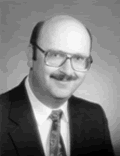 Jerry
Lazarski View Presentation
(PDF) Jerry
Lazarski View Presentation
(PDF)Jerry Lazarski is vice president, technology and business development, at Stora Enso North America . He is responsible for leading and supporting the Division's capital investment strategy, planning and execution. In his 30+ year career in the paper industry, he has had extensive manufacturing and engineering experience in both magazine and fine papers areas. This includes serving on start-up teams of two new paper machine projects during his career. Jerry was named mill manager of the Wisconsin Rapids Mill in 1997 and advanced to his current position in 2004. Lazarski has a B.S. degree in paper science and engineering from the University of Wisconsin-Stevens Point and an M.B.A. degree from the University of Wisconsin-Oshkosh. Return to agenda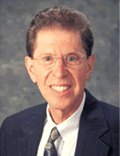 Charlie
Liotta Charlie
LiottaAs the Vice Provost for Research and Dean of Graduate Studies, Dr. Liotta guides the investment of research resources and nurtures the development of researchers and their programs. His Office of Research and Graduate Studies oversees the administration of a research enterprise expending over $425 million annually. His management team supports interdisciplinary program development, manages the business processes for the research funding, and invests in world-class research facilities, federal relations and international research and graduate study collaborations. His responsibilities include programs to attract high quality faculty and graduate students to Georgia Tech, and assure that their innovations become realities in the global market place. Return to agenda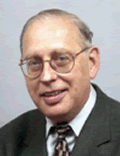
Jim, formerly President and CEO of Jaakko Poyry Consulting North America, presently serves as Senior Industry Advisor and Head of the Board of Advisors for Forestweb, Inc., is President of his own management consulting firm–Degrees of Excellence, serves as Senior Executive In Residence at North Carolina State University and is the Executive Director of the Center for Paper Business and Industry Studies (CPBIS) at Georgia Tech. Jim also serves on the Boards of Directors of the World Forestry Center (WFC) and the Paper Industry Management Association (PIMA). Jim has extensive international forest products education, research, management, marketing, business development and consulting experience and has held senior positions at Georgia-Pacific/Great Northern Nekoosa, Jefferson Smurfit/Container Corporation of America, and Potlatch. He has also served in forest products and management sciences related academic positions at the University of Washington and Oregon State University . Jim has a B.S. in Industrial Engineering, a joint MBA/M.S. in Managerial Sciences and Forestry and a PhD in Forest Managerial Science. Jim and his wife of nearly 30 years–Debbie–who currently make their home in Southport , North Carolina , are the parents of four children: Matthew David, Catherine Diane, Elisabeth Ann, and Allison Marie. Return to agenda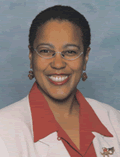 Lori Perine
View Presentation
(PDF) Lori Perine
View Presentation
(PDF)Lori A. Perine was named Executive Director of the forest products industry's technology alliance, Agenda 2020, in September 2004. She ensures strategy development and operations of the Alliance , which defines the industry's technology vision and establishes partnerships to execute related collaborative research, development and deployment. Perine is a long-time champion for technological innovation, global competitiveness, and math and science education. A former Deputy Associate Director for Technology at the White House Office of Science and Technology Policy, she was instrumental in advancing R&D programs and partnerships in energy efficient transportation and housing technology, applications of information technology to advanced manufacturing, and pre-competitive technology development. She successfully collaborated with industry, academia, and Congress to gain support for federal R&D initiatives, and worked closely with the President's Information Technology Advisory Committee and the President's Committee of Advisors on Science and Technology. Upon leaving the White House, Perine was President and CEO of a private consulting firm, applying her expertise internationally to forge strategic partnerships and identify opportunities for technological innovation. She assisted the Electronic Industry Alliance in developing its policy strategy on offshore outsourcing and innovation, and created a roadmap of international priorities for the National Science Foundation's initiative to deploy an enhanced cyberin-frastructure for science and engineering research and education. Perine also advised APEC-TEL on public-private collaboration for technology and analyzed public-private sector roles in innovation for Russian business and government leaders. Other engagements have included assisting the formation of a private equity fund investing in innovation to re-engineer mid-market companies and overseeing the development of e-government technology prototypes by an international industry consortium. Deployment of innovative technologies has been consistent theme in Perine's professional career, which initially focused on international energy efficiency, planning and management. She has served as a World Bank energy program manager and a management consultant to deploy new technology in the petrochemical industry. As an economist at the National Institute of Standards and Technology advancing to the position of Senior Policy Advisor for Technology to the U.S. Secretary of Commerce, she was responsible for promoting advanced research and adoption of technology to achieve economic growth and broad societal benefits. Ms. Perine undertook doctoral studies at the Wharton School, received an M.S. in Energy Management and Policy from the University of Pennsylvania and was graduated magna cum laude from Bryn Mawr College with an A.B. degree in Mathematics. She studied Applied Mathematics at the École Polytechnique Fédérale de Lausanne in Switzerland , under the auspices of the IIE/Fulbright-Hays Program. She is asked regularly to serve on the governing bodies of local civic, arts and business organizations. Current affiliations include the board of the City Club of Washington and the Diocesan Council of the Episcopal Diocese of Washington . Perine has been recognized as one of the 50 Most Important African Americans in Technology and honored as a National Role Model for minorities in science and technology. Return to agenda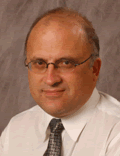 Art
Ragauskas View Presentation
(PDF) Art
Ragauskas View Presentation
(PDF)Arthur Ragauskas is a Fellow of the International Academy of Wood Science and TAPPI. His research program at Georgia Institute of Technology is seeking to understand and exploit innovative sustainable lignocellulosics chemistries. This multifaceted program seeks to develop new and improved applications for nature's premiere renewable biopolymers including cellulose, hemicellulose and lignin. To accomplish this goal and demonstrate this vision, his research activities are directed at developing innovative processes for converting lignocellulosics into innovative biomaterials, biofuels and nutritional resources. Achieving this goal requires the pursuit of research in several fields of study including carbohydrate, lignin and extractives chemistry, nanobioterials, green chemistry, biotechnology, chemoenzymatic oxidations and polymer science. These research studies are supported by their research expertise in advanced spectroscopic, imaging, and chromatography separations/analysis of biopolymers and chemicals including carbohydrates and lignin. His research program is sponsored by a consortium of industrial partners, DARPA, NSF, USDA, DOE and GA TIP3. He has been a Luso-American Foundation teaching fellow at the Universidade da Beira Interior, Portugal; an invited guest teaching professor at Chalmers University of Technology, Sweden, South China University of Technology; and an invited research professor at the Royal Institute of Technology/STFi, Stockholm. He has published 185 papers, patents and conference proceedings. He is an Associate Editor for J. Pulp and Paper Science, Holzforschung, J. Wood Chemistry and Technology and has served on several advisory boards and review panels including European Commission Research Directorate, J. Paul Getty Trust, NSF, USDA, DOE and National Academy Science. Return to agenda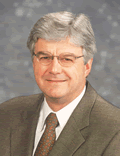
Bill Rouse is the Executive Director of the Tennenbaum Institute at the Georgia Institute of Technology. This university-wide center pursues a multi-disciplinary portfolio of initiatives focused on research and education to provide knowledge and skills for enterprise transformation. He is also a professor in the College of Computing and School of Industrial and Systems Engineering. Rouse has written hundreds of articles and book chapters, and has authored many books, including most recently Essential Challenges of Strategic Management (Wiley, 2001) and the award-winning Don't Jump to Solutions (Jossey-Bass, 1998). He is co-editor of Organizational Simulation: From Modeling & Simulation to Games & Entertainment (Wiley, 2005), co-editor of the best-selling Handbook of Systems Engineering and Management (Wiley, 1999), and editor the eight-volume series Human/Technology Interaction in Complex Systems (Elsevier). Rouse is a member of the National Academy of Engineering, as well as a fellow of the Institute of Electrical and Electronics Engineers, the Institute for Operations Research and Management Science, and the Human Factors and Ergonomics Society. He received his B.S. from the University of Rhode Island , and his S.M. and Ph.D. from the Massachusetts Institute of Technology. Return to agenda
Clayton Teague is Director of the Federal National Nanotechnology Coordination Office (NNCO), being appointed in April 2003. As Director of the NNCO, he is the agency representative to the National Science and Technology Council from his position as Chief of the Manufacturing Metrology Division of the National Institute of Standards and Technology (NIST). Beginning with his quantum mechanical tunneling work, he has been working in the some of the fields now known as nanotechnology since 1967. His work has included designing, constructing, and using scanning tunneling microscopes (STMs), atomic force microscopes (AFMs), and interferometers for ultra-high accuracy dimensional metrology of surfaces and micrometer to nanometer-scale features. He has authored or coauthored over 70 papers in these fields. Dr. Teague is a member of the American Society for Precision Engineering, has served twice as the Society's president, and is a fellow of the UK Institute of Physics. He served as Editor-in-Chief of the international journal Nanotechnology for ten years and is currently a member of the Editorial Board of the journal. He holds a BS and MS in physics from the Georgia Institute of Technology and a PhD in physics from the University of North Texas . He has been active in the metrology and standards communities for most of his career and has been privileged to receive a number of honors and awards from the government as well as industrial and private organizations for his work. Specifically, he has received the Gold Medal, Silver Medal, and Allen V. Austin Measurement Science Award from the Department of Commerce, the Kilby International Award from the Kilby Awards Foundation, and an IR-100 Industrial Research and Development Award. Return to agenda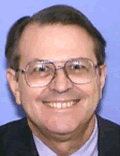 Ben Thorp
View Presentation
(PDF) Ben Thorp
View Presentation
(PDF)Ben Thorp, presently serves as Strategic Consultant for The Center For Technology Transfer (CTT). He recently retired from his core industry position as the Agenda 2020 Deployment Director, for Georgia-Pacific Corp., Atlanta , Georgia . Ben is one of a handful of people who contributed to successful large-scale innovations in the forest products industry. They include synthetic forming fabrics, hydrofoils, off balance sheet power islands, soft tissue machines and organizing industry and U.S. Department of Energy (DOE) support for projects converting spent liquors to energy. He is one of the contributors to the formulation of the forest biorefinery. Ben has seen the industry from four different sides. He has worked for paper producers such as Georgia-Pacific Corp., James River and Chesapeake . He has worked for firms that design and build facilities, such as BE&K and Jaakko Poyry. He has worked for suppliers to the industry like Huyck Corp. He has also worked for the University of Maryland and supported other universities by serving on advisory boards and foundations. In addition to the business accomplishments, Ben has been awarded 7 patents, many of which were commercialized. Concurrently, Ben has had held leadership roles in PIMA, TAPPI, Vision 300, and Agenda 2020, whose mission is to improve industry economics and value to society by delivering technical solutions. Ben's community service includes foundation boards, for the Science Museum of Virginia, The Richmond Math and Science Center and Meadowbrook Estates Civic Association where he is President-elect. Return to agenda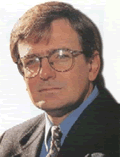 Steve
Usselman Steve
UsselmanSteve Usselman is a historian of business, technology, and American political economy. He studies the dynamics of innovation and industrial change in the United States since the early nineteenth century. His book, Regulating Railroad Innovation: Business, Technology, and Politics in America , 1840-1920 ( Cambridge , 2002), synthesizes one prominent vein of his research. It received the Ellis W. Hawley Prize, awarded annually by the Organization of American Historians to the best book published in the history of political economy, politics, or institutions of the United States, domestic or international, from the Civil War to the present. Steve Usselman has also published numerous articles on that subject in journals such as Technology and Culture and Business History Review, one of which was awarded the Newcomen Prize. Professor Usselman has also published extensively on the rise and development of the computer industry and is currently completing a book on that topic. His study “IBM and Its Imitators” received the Newcomen Award for excellence in business history. With support from CPBIS, Professor Usselman has embarked on a study of a third industry: pulp and paper in the twentieth century. As with his previous work, this project examines the interactions among technical innovation, business organization and strategy, and government policy. He is especially interested in documenting how antitrust law, intellectual property rights, and environmental regulation have influenced innovation, organization and strategy. Professor Usselman has coordinated graduate programs at UNC--Charlotte and at Georgia Tech's School of History , Technology, and Society. Through collaborations with colleagues in several other units, he has worked to foster interdisciplinary education at both the undergraduate and graduate levels. He has also pioneered in the use of new media to create graduate seminars that bring together students from multiple institutions. In 2000, he received the E. Roe Stampps award for excellence in teaching from Georgia Tech's Ivan Allen College. Return to agenda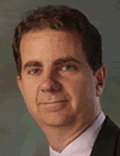 Joel West
View Presentation
(PDF) Joel West
View Presentation
(PDF)Joel West, Ph.D. is associate professor of technology management at San Jose State University . His research focuses on innovation creation and adoption strategies in high-technology industries, and is the author of more than 30 published or forthcoming research articles in journals, conference proceedings or academic books. With Hank Chesbrough and Wim Vahaverbeke, he is editing a volume of research on open innovation called Open Innovation: Researching a New Paradigm, which will be published in summer 2006 by Oxford University Press. He holds degrees from M.I.T. and University of California , Irvine . Prior to joining San Jose State , he spent 20 years as an engineer and manager in the software industry. Return to agenda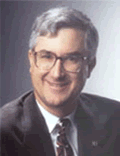 George
Weyerhaeuser George
WeyerhaeuserGeorge H. Weyerhaeuser Jr., serves as Senior Vice President, Technology, responsible for Research and Development at Weyerhaeuser Company. Weyerhaeuser is chair of the University of British Columbia Faculty of Forestry Advisory Council. He is a board member of the Institute of Forest Biotechnology . He is a director of Clearwater Management Company and the Thea Foss Waterway Public Development Authority. He serves as chairman for the Museum of Glass : International Center for Contemporary Art. George also serves as the founding Chairman of the CPBIS Board of Executives. Weyerhaeuser joined the Weyerhaeuser Company in Dierks, Arkansas in 1978 where he held various positions including technical forester and contract logger administrator before becoming sawmill supervisor in 1980. He moved to the Valliant Oklahoma operations in 1981 where he assumed several company roles before being named vice president and mill manager for Containerboard in 1987. In 1990, Weyerhaeuser moved to Corporate Headquarters in Federal Way to become vice president, manufacturing for Weyerhaeuser pulp & paper businesses. He served as president and chief executive officer of Weyerhaeuser Canada from June 1993 to May 1998. Weyerhaeuser received his bachelor's degree in Philosophy/Mathematics from Yale University in 1976 and a masters of science from the Sloan School of Management, Massachusetts Institute of Technology in 1986. Weyerhaeuser's great, great grandfather was Frederick Weyerhaeuser, one of the Weyerhaeuser Company founders in 1900. Return to agenda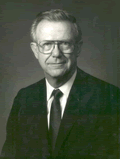 Special Bio – For
George W. Mead Special Bio – For
George W. MeadGeorge W. Mead is the past chairman of the board of Consolidated Papers, Inc., Wisconsin Rapids , Wisconsin . He recently retired as a member of the board of directors of Stora Enso Oyj on which he served from September 2000 to March 2004. Story Enso is the Finnish company with which Consolidated Papers merged in August 2000. Mr. Mead was born in Milwaukee , Wisconsin , on October 11, 1927. He obtained a Bachelor of Science degree from Yale University in 1950 and a Master of Science degree from The Institute of Paper Chemistry , Appleton , Wisconsin , in 1952. He joined Consolidated Papers, Inc., as a chemical engineer that same year and was later elected vice president, operations, in 1962, a company director in 1963, and president and chief executive officer in 1966. He became chairman in 1971 and was chief executive officer until 1993, at which time he became non executive chairman. He is the third generation of his family to serve as chief executive officer of Consolidated Papers, Inc., of which his great grandfather, J.D. Witter, was a key founder. The company was known as the leading supplier of coated printing papers to the printing and publishing industries and, in the late ‘30s, became the largest supplier of paper to Time, Inc. In a 1987 poll of sell side security analysts, Consolidated Papers, Inc. was voted the best managed paper company. Under Mr. Mead's leadership as chief executive officer, the company broadened its product line and enhanced customer relationships. Active in industry associations for over three decades, Mr. Mead has served on the board of directors of the American Forest & Paper Association (AF&PA), where he also chaired the AF&PA environmental and health program. He is a past chairman and member of the board of governors and executive committee of the National Council of the Paper Industry for Air & Stream Improvement, Inc. He served as a trustee and chairman of the board of trustees of the Institute of Paper Science and Technology (formerly The Institute of Paper Chemistry ) and is a fellow of the Technical Association of the Pulp and Paper Industry. He is also an emeritus trustee of Lawrence University . Mr. Mead was chosen Papermaker of the Year in 1986 by the Paper Industry Management Association and again in 1990 by PaperAge magazine. In 1994, he received the Herman Louis Joachim Award for Excellence in Management from the Syracuse Pulp and Paper Foundation, Inc. In 2004, George was granted the Doctor of Philosophy, Honoris Causa by the Institute of Paper Science and Technology. An avid downhill skier and trap shooter, Mr. Mead has three children and four grandchildren. He enjoys reading (especially history), cooking and travel. He and his wife, Susan Feith, live in Wisconsin Rapids , Wisconsin , where they operate the Mead Witter Foundation, Inc., a private philanthropic foundation of which he is currently chairman. Return to agendaIPST at GT ANTITRUST STATEMENT INSTITUTE OF PAPER SCIENCE AND TECHNOLOGY Antitrust Notice Guidelines for Meetings Neither the Institute of Paper Science and Technology nor any committee or activity of IPST-GT shall be used or include discussions for the purpose of bringing about or attempting to bring about any understanding or agreement, written or oral, formal or informal, expressed or implied, among competitors with regard to prices, terms or conditions of sale, distribution, volume of production, or allocation of territories, customers, or suppliers. No IPST-GT activity shall involve exchange or collection and dissemination among competitors of any information regarding prices, pricing methods, costs of production, sales, marketing, or distribution. Neither IPST-GT nor any committee thereof shall make any effort to bring about the standardization of any product for the purpose of or with the effect of preventing the manufacture or sale of any product not conforming to a specified standard. UPST-GT does not become involved in or establish any product standards and is precluded from endorsing any product or process. CPBIS ANTITRUST STATEMENT CENTER FOR PAPER BUSINESS AND INDUSTRY STUDIES Antitrust Notice Guidelines for Meetings, Reports, Website and Forums Neither the Center for Paper Business and Industry Studies (CPBIS) and its associated research and teaching faculty and graduate students and support staff nor any board, committee, report, website or forum posting (written or verbal) or activity (collectively – “Activities”) of the CPBIS shall be used to or include discussions for the purpose of bringing about or attempting to bring any understanding or agreement among competitors, whether written, digital or oral, formal or informal, expressed or implied with regard to prices, terms or conditions of sale, distribution, volume of production, or allocation of territories, customers or suppliers. No CPBIS Activities shall involve exchange or collection and dissemination among competitors of any information regarding prices, pricing methods, costs of production, sales marketing, or distribution which may be construed to bring about any understanding or agreement among competitors, whether written or oral, formal or informal, expressed or implied, with regard to prices, terms or conditions of sale, distribution, volume of production, or allocation of territories, customers or suppliers. Neither the CPBIS and its associated research and teaching faculty, graduate students and support staff nor any board or committee thereof shall make any effort to bring about the standardization of any paper industry related product for the purpose of or with the effect of preventing the manufacture or sale of any paper industry related product not conforming to a specified standard. The CPBIS and its associated research and teaching faculty and graduate students and support staff will not become involved in any paper industry related product standards or endorsements. The CPBIS, as affiliated with the Georgia Institute of Technology (GT) – a tax exempt educational institution – expressly precludes the establishment of industry-specific product standards or the explicit endorsement of any specific product or individual production process. |